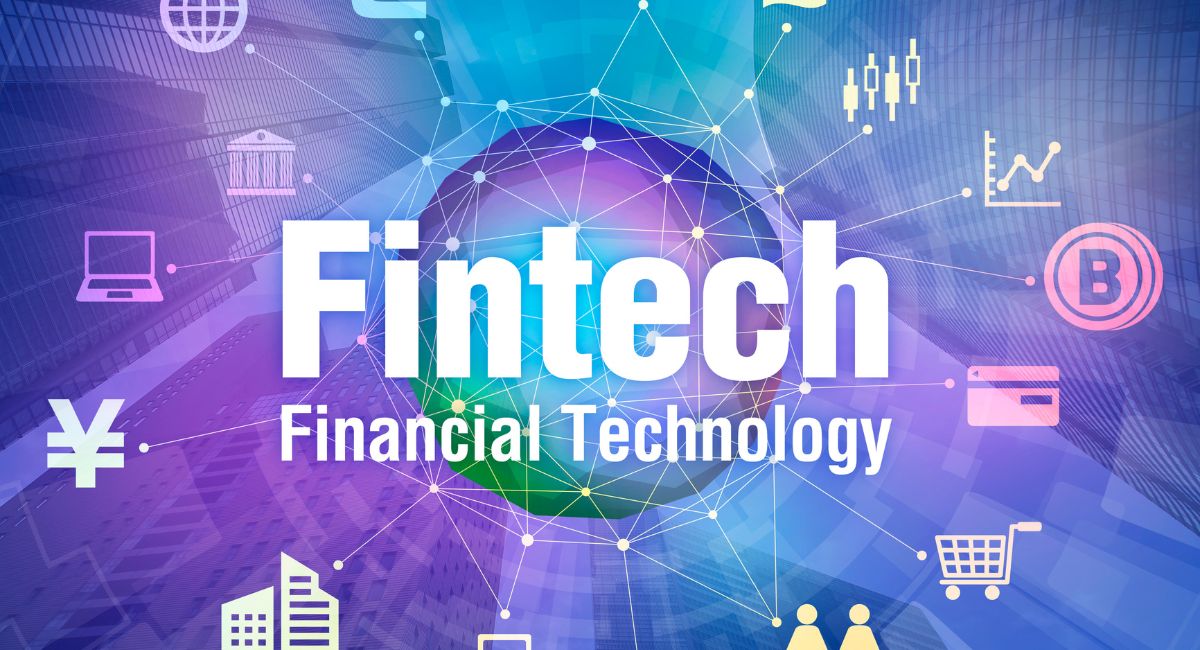The Transformative Impact Of Generative AI On The Fintech Industry
The intersection of Generative Artificial Intelligence (AI) and the Fintech industry is redefining the landscape of financial services. Generative AI technologies, powered by advanced machine learning algorithms, have emerged as a game-changer for the Fintech sector, revolutionizing everything from customer service to risk assessment. In this article, we will explore how Generative AI is poised to help the Fintech industry and discuss its advantages and disadvantages in shaping the future of financial services.
Generative AI is poised to revolutionize the Fintech industry, empowering businesses to provide superior customer experiences, automate complex processes, and make data-driven decisions. The adoption of Generative AI will lead to increased efficiency, better risk management, and enhanced financial services for customers, ultimately reshaping the future of the Fintech landscape. As this transformative technology continues to evolve, it will unlock new opportunities for growth and innovation in the financial sector.
Top 10 Ways Generative AI is poised to revolutionize the Fintech industry
**1. Enhanced Customer Experience:** Generative AI-powered chatbots and virtual assistants will provide seamless and personalized customer support, offering real-time assistance and financial advice to users, thereby improving overall customer experience.
**2. Automated Data Analysis:** Generative AI will streamline data analysis, enabling Fintech companies to process vast amounts of information rapidly. This will lead to more accurate risk assessments, investment strategies, and personalized financial services.
**3. Efficient Fraud Detection:** Generative AI algorithms will be highly effective in detecting and preventing fraudulent activities in financial transactions. The technology will analyze transaction patterns and flag suspicious activities in real-time, safeguarding both customers and businesses.
**4. Faster Loan Approval and Underwriting:** Fintech lenders will utilize Generative AI for automated loan approval and underwriting processes. This will expedite loan assessments, reduce human errors, and provide faster access to credit for customers.
**5. Smart Contract Automation:** Generative AI will revolutionize smart contracts in blockchain-based transactions. By automating the execution and enforcement of these contracts, it will improve transparency and efficiency in financial dealings.
**6. Predictive Analytics for Investment:** Generative AI-powered predictive models will enable Fintech firms to make data-driven investment decisions. This technology will forecast market trends, customer behavior, and investment opportunities, leading to more successful investment strategies.
**7. Personalized Financial Planning:** Generative AI will analyze individual customer data to offer personalized financial planning and investment advice. Users will receive tailored recommendations based on their financial goals, risk tolerance, and spending patterns.
**8. Streamlined Regulatory Compliance:** Fintech companies will utilize Generative AI to ensure compliance with complex and evolving financial regulations. This technology will automate compliance monitoring and reporting, reducing the risk of non-compliance.
**9. Algorithmic Trading Advancements:** Generative AI will transform algorithmic trading strategies by analyzing vast amounts of market data, identifying patterns, and executing trades at unprecedented speeds, leading to improved trading outcomes.
**10. Financial Inclusion:** Generative AI-driven solutions will reduce operational costs for Fintech companies, making it easier to extend financial services to underserved populations. This will promote financial inclusion and access to banking services for previously excluded communities.
Also, read – What is Generative AI And Will It Affect Metaverse Positively Or Negatively
Advantages of Generative AI in the Fintech Industry
1. **Automated Customer Service**: Generative AI-driven chatbots and virtual assistants can handle customer queries and provide personalized support 24/7, significantly improving response times and enhancing customer satisfaction.
2. **Personalized Financial Advice**: By analyzing vast amounts of customer data, Generative AI can offer tailored financial advice and investment recommendations, helping users make more informed decisions about their finances.
3. **Fraud Detection and Prevention**: Generative AI can analyze transaction patterns and identify suspicious activities, enabling Fintech companies to proactively detect and prevent fraud in real-time.
4. **Credit Risk Assessment**: AI-powered algorithms can assess credit risk more accurately by analyzing a broader range of data points, resulting in better lending decisions and reduced default rates.
5. **Automated Underwriting**: Generative AI simplifies and expedites the underwriting process by automating the evaluation of loan applications, streamlining operations for Fintech lending platforms.
6. **Algorithmic Trading**: Generative AI can analyze market data and execute trades at lightning speed, enhancing trading strategies and improving investment outcomes for Fintech firms and their clients.
7. **Smart Contract Automation**: By utilizing Generative AI, Fintech companies can automate the execution and enforcement of smart contracts, ensuring transparency and efficiency in blockchain-based transactions.
8. **Predictive Analytics**: AI-driven predictive models can forecast market trends and customer behavior, empowering Fintech businesses to make data-backed decisions and anticipate future opportunities.
9. **Financial Inclusion**: Generative AI enables Fintech firms to extend their services to underserved populations by automating processes and reducing the cost of providing financial solutions.
10. **Improved Regulatory Compliance**: AI can help Fintech companies stay compliant with evolving regulations by monitoring and reporting data in real-time, reducing the risk of non-compliance.
1/Excited to announce the next chapter of @lightspeedvp monthly Generative NYC series, this time exploring the potential of #AI within fintech.
On 8/15 @ 6p, I’ll be hosting a convo w @leifthunder @sashaorloff & Grace Liu (@usealloy)
Register to attend 👇https://t.co/aE4sM4uO50
— Justin M. Overdorff (@jmover) July 26, 2023
Disadvantages of Generative AI in the Fintech Industry
1. **Data Privacy Concerns**: The use of sensitive customer data in AI algorithms raises privacy issues, necessitating robust data protection measures to prevent data breaches.
2. **Bias in Decision-making**: If the training data used for AI models contains biases, it may lead to discriminatory decisions, particularly in credit assessment and lending processes.
3. **Dependency on Data Quality**: The accuracy and effectiveness of Generative AI depend on the quality and relevance of the data fed into the algorithms. Poor-quality data can lead to erroneous outcomes.
4. **Lack of Human Oversight**: Overreliance on AI systems without human oversight can lead to unforeseen errors and decision-making challenges.
5. **Security Vulnerabilities**: Generative AI systems may be susceptible to attacks and manipulations, posing cybersecurity risks for Fintech companies and their clients.
6. **High Initial Costs**: Implementing Generative AI solutions can be expensive, especially for startups and smaller Fintech firms.
7. **Complexity and Integration Challenges**: Integrating Generative AI with existing Fintech infrastructure may present technical and compatibility hurdles.
8. **Ethical Concerns**: Fintech companies must navigate ethical considerations when deploying AI systems, particularly when it comes to automated decision-making that affects people’s financial lives.
9. **Regulatory Compliance Challenges**: The evolving nature of AI regulations can pose compliance challenges for Fintech firms, requiring constant monitoring and adaptation.
10. **Job Displacement**: Automation through Generative AI may lead to the displacement of certain job roles within the Fintech industry, necessitating workforce retraining and restructuring.
🏦 Who are the Pioneers of Generative AI in the Banking Landscape?
Let’s dive in:https://t.co/UwGunM56xP#banking #fintech #ai #ArtificialInteligence
— Marcel van Oost (@oost_marcel) July 28, 2023
Conclusion
Generative AI holds immense promise for the Fintech industry, offering advantages such as improved customer service, fraud detection, and personalized financial advice. However, Fintech companies must also be vigilant about addressing data privacy, bias, and security concerns. By striking a balance between AI-driven innovation and responsible use, Fintech firms can leverage the transformative power of Generative AI to drive growth, enhance services, and reshape the financial landscape for the better.
Stay informed with daily updates from Blockchain Magazine on Google News. Click here to follow us and mark as favorite: [Blockchain Magazine on Google News].
Get Blockchain Insights In Inbox
Stay ahead of the curve with expert analysis and market updates.
latest from tech
Disclaimer: Any post shared by a third-party agency are sponsored and Blockchain Magazine has no views on any such posts. The views and opinions expressed in this post are those of the clients and do not necessarily reflect the official policy or position of Blockchain Magazine. The information provided in this post is for informational purposes only and should not be considered as financial, investment, or professional advice. Blockchain Magazine does not endorse or promote any specific products, services, or companies mentioned in this posts. Readers are encouraged to conduct their own research and consult with a qualified professional before making any financial decisions.

 Bitcoin
Bitcoin  Ethereum
Ethereum  Tether
Tether  XRP
XRP  Solana
Solana  Dogecoin
Dogecoin  USDC
USDC  Lido Staked Ether
Lido Staked Ether  Cardano
Cardano  TRON
TRON  Avalanche
Avalanche  Chainlink
Chainlink  Toncoin
Toncoin  Wrapped stETH
Wrapped stETH  Shiba Inu
Shiba Inu  Wrapped Bitcoin
Wrapped Bitcoin  Sui
Sui  Stellar
Stellar  Polkadot
Polkadot  Hedera
Hedera  Hyperliquid
Hyperliquid  WETH
WETH  Bitcoin Cash
Bitcoin Cash  LEO Token
LEO Token  Uniswap
Uniswap  Litecoin
Litecoin  Pepe
Pepe  Wrapped eETH
Wrapped eETH  NEAR Protocol
NEAR Protocol  Ethena USDe
Ethena USDe  USDS
USDS  Aptos
Aptos  Aave
Aave  Internet Computer
Internet Computer  Cronos
Cronos  POL (ex-MATIC)
POL (ex-MATIC)  Mantle
Mantle  Ethereum Classic
Ethereum Classic  Render
Render  Monero
Monero  WhiteBIT Coin
WhiteBIT Coin  MANTRA
MANTRA  Dai
Dai  Bittensor
Bittensor  Artificial Superintelligence Alliance
Artificial Superintelligence Alliance  Arbitrum
Arbitrum  Ethena
Ethena 




